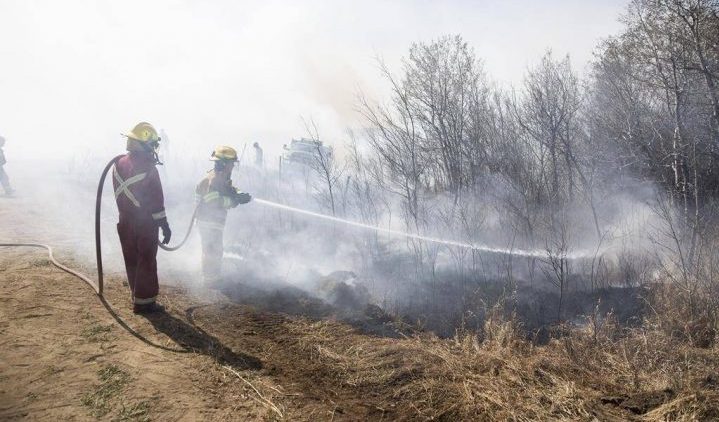As things warm up in Saskatchewan, the risk of wildfires bumps back up across the province and the Saskatchewan Public Safety Agency (SPSA) is calling on the public to help prevent spring fires.

The Saskatchewan Public Safety Agency gave an update on the upcoming fire season, saying that fire crews started early to get ready for this year.
Marlo Pritchard, SPSA president, said that on average, half of wildfires each year are started by people.

“As a result I urge everyone to take extreme precautions during the spring and early summer months,” Pritchard said.
He said we saw below-average precipitation during the winter months and that several areas are at a higher risk of fire.

Get daily National news
Pritchard said they were expecting above-average temperatures for spring, but possible cooler and wetter temperatures during the summer.
Steve Roberts, vice-president of operations for SPSA that ground crews should be ready to respond to fires by next week.
He said there were 220 type one firefighters and 410 type two firefighters being staffed for 2024, which is the same as last year, but added that there is room to expand if need be.
“Ultimately what will generate the response and activity will be the number of fires we gain in the next two months, and as indicated by the president those fires will be man-caused, primarily,” Roberts said.
“Our actual result of how much fire area burnt and communities evacuated is 100 per cent reliant on people being careful with fire and not causing fires that should be avoided in early spring conditions until the lightning arrives.”

Roberts said they prepare for a busy season regardless.
He said based on the current conditions they expect a wildfire season that he described as average or above average.
“The summer weather will determine what that actually results in.”
Roberts stressed that there is a high risk and that wildfires that start in the spring months can build into larger fires that can end up causing evacuations.
Last year Saskatchewan faced drier-than-normal conditions, resulting in fire bans being implemented across large parts of the province.
Those drier conditions caused 60 of the 66 rural municipalities in the province to report agricultural disaster.








Comments